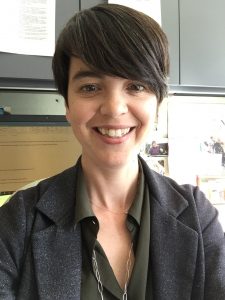The Right Breast Cancer Screening at the Right Time
March 8/2021
DLSPH Profs. Jennifer Brooks, Anna Chiarelli and Meghan Walker are helping to lead game-changing research to better understand breast cancer risk and deliver more personalized screening tests for Ontarians.
Most women with breast cancer have no family history, and don’t have the BRCA genetic mutations with strong links to the disease. But in recent years, scientists have discovered hundreds of genetic changes with weak links to breast cancer. Individually, none of these have proven useful in predicting breast cancer. But taken together with other information, these lesser mutations can improve the ability to predict a woman’s risk of getting breast cancer.

Asst. Prof. Meghan Walker
The DLSPH team has partnered with Quebec scientists to launch the PERSPECTIVE I&I study, which is recruiting 5,000 Ontario and Quebec women in the hope of developing a much more precise screening system to find breast cancer earlier – and save more lives.
“Hopefully this will empower women to make decisions, in consultation with their physicians, about how often to get mammograms and other screenings,” says Brooks. “Right now most women get a mammogram every two years from ages 50 to 74. But some women actually need more than that, and some may need less.”

Asst. Prof. Jennifer Brooks
The team’s research is part of a drive toward precision public health – providing the right care to the right populations at the right time. And, mindful that much successful Canadian research is shelved due to the complexity of our medical systems, they have created research that’s translatable into actionable practice.
Brooks, Chiarelli and Walker use saliva samples to find more than 300 common mutations in study participants and information from mammogram reports and health histories. They plug the data into the CanRisk web tool, which estimates the woman’s breast cancer risk as average, higher than average and high. Participants receive information about their risk level, and a genetic counsellor helps those at high risk to connect with the Ontario Breast Screening Program, which provides additional screening to high-risk patients.
“We’ll follow these women and look at real outcomes,” says Brooks, who teaches in DLSPH’s Division of Epidemiology, along with Chiarelli and Walker. “But we’ll also simulate outcomes to see if we can reduce unnecessary biopsies to avoid the anxiety they bring and create health system savings. We’ll look at whether we can improve the experience of women and strengthen the health system.”

Anna Chiarelli
The PERSPECTIVE I&I Study is looking for volunteers between the ages of 40 and 69 and have had a mammogram at Sunnybrook Health Sciences Centre, Unity Health Toronto (St. Michael’s Hospital), Grand River Hospital (Freeport Site), University Health Network (Princess Margaret Cancer Centre), or Hamilton Health Sciences Centre (Juravinski Hospital), or Kingston Health Sciences Centre (Kingston General Hospital). Learn more about the study and see if you are eligible to participate.